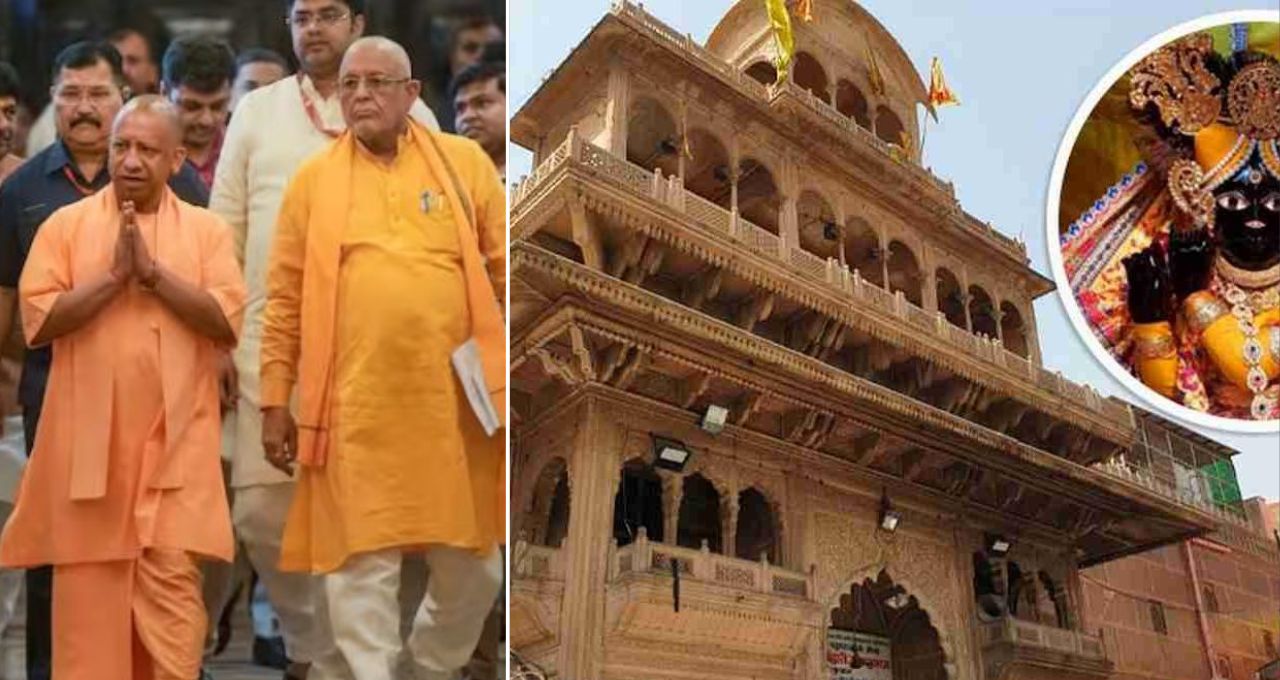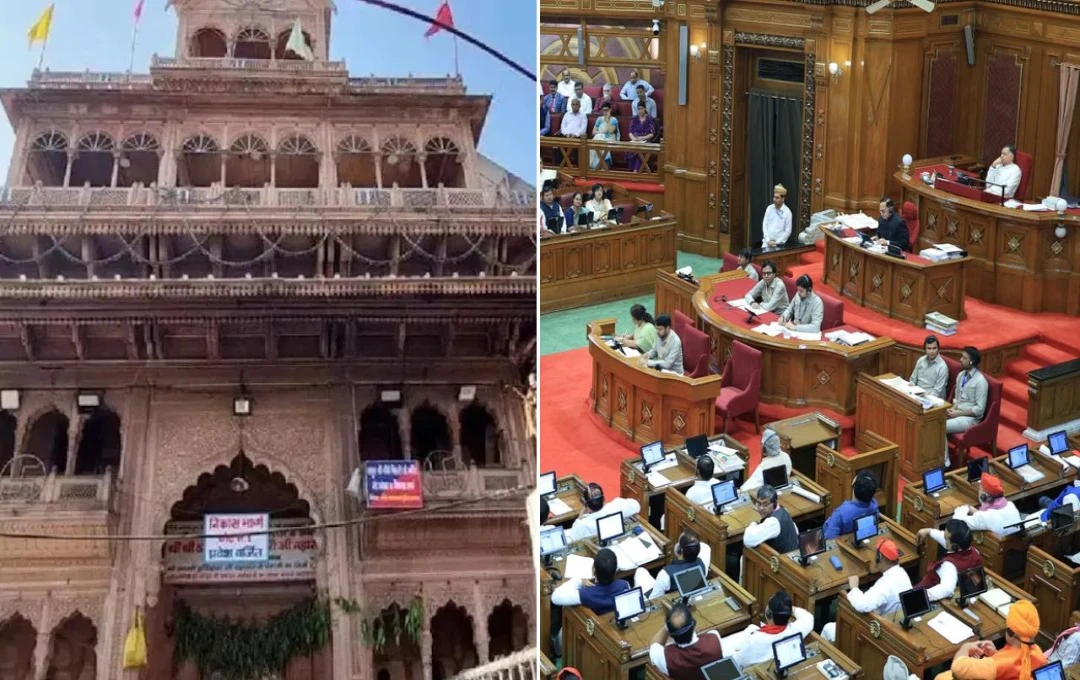The Uttar Pradesh government introduced the Shri Banke Bihari Temple Trust Formation Bill in the monsoon session. The trust will safeguard the Swami Haridas tradition and ensure modern facilities, administrative management, and security for devotees.
UP Monsoon Session 2025: On the third day of the monsoon session of the Uttar Pradesh Legislative Assembly, the government introduced the Shri Banke Bihari Temple Trust Formation Bill. The stated objective of this bill is to institutionalize the administration of the temple and enhance the experience for devotees. The government has clarified that the formation of the trust is intended to maintain and promote the tradition of Swami Haridas.
Formation and Objectives of the Trust
The government has stated that the formation of the trust will strengthen the administrative structure while protecting the religious traditions and customary practices of the temple. This ordinance will be implemented to prevent any interference or alteration in the conduct of worship, rituals, and festival ceremonies at the temple. The trust will be formed to manage the offerings, donations, movable and immovable properties of the temple.
The temple's properties will include idols, the temple complex, offerings and gifts given by devotees, cash contributions, hundis collections, bank drafts, and checks. In addition, the trust will have rights over jewelry, grants, contributions, and all movable and immovable properties related to the temple.
Preservation of Swami Haridas's Tradition
The government has clarified that the trust's formation is aimed at furthering the tradition of Swami Haridas. The methods of worship, festivals, and religious rituals that have been ongoing since the time of Swami Haridas will continue without any change or interference. The trust will determine the timing of darshan, appoint priests, and determine their salaries, allowances, or compensation. Furthermore, the trust will be responsible for the safety of devotees and visitors, as well as the effective administration and management of the temple.

World-Class Facilities for Devotees
Following the formation of the trust, the government has set a goal to provide modern and world-class facilities for devotees at the temple. This will include facilities such as prasad distribution, separate darshan routes for senior citizens and the differently-abled, provision of drinking water, benches for resting, queue management kiosks, cowsheds, annakshetra (food distribution centers), and kitchens. In addition, arrangements such as hotels, inns, exhibition rooms, dining halls, and waiting rooms will also be developed within the temple complex.
Structure and Membership of the Trust
Nominated Members
The trust will have a total of 11 nominated members. These will include:
- Three distinguished members from Vaishnav traditions and sects, who may include sadhus, saints, munis, gurus, scholars, mathadheesh, mahants, acharyas, or swamis.
- Three members from the traditions of Sanatan Dharma, who may be scholars, social workers, or distinguished individuals.
- Three distinguished members from any branch of Sanatan Dharma, who may be educationists, scholars, entrepreneurs, or social workers.
- Two members from the Goswami tradition, who will be descendants of Swami Haridas Ji. One will be a representative of the Raj-Bhog Sewadar and the other a representative of the Shayan-Bhog Sewadar.
- All nominated members will be Sanatani Hindus. Their term will be three years.
Ex-Officio Members
Ex-officio members will include administrative and government representatives. This will include the District Magistrate of Mathura, the Senior Superintendent of Police, the Municipal Commissioner, the CEO of the Uttar Pradesh Braj Teerth Kshetra Development Council, the CEO of the Banke Bihari Temple Trust, and a nominee of the state government. If an ex-officio member is not a Hindu, a junior officer will be nominated in their place.
Meetings, Liabilities, and Financial Powers
Meetings of the trust will be mandatory every three months, and notice of the meeting will be given 15 days prior to the event. The members of the trust will not be held liable for actions taken in good faith. The trust will have the right to purchase property worth up to ₹20 lakh on its own. For property exceeding this value, government approval will be required. The Chief Executive Officer (CEO) will be an officer of the rank of Additional District Magistrate (ADM). The trust will have the authority over the temple's operations, administrative decisions, and financial decisions.














